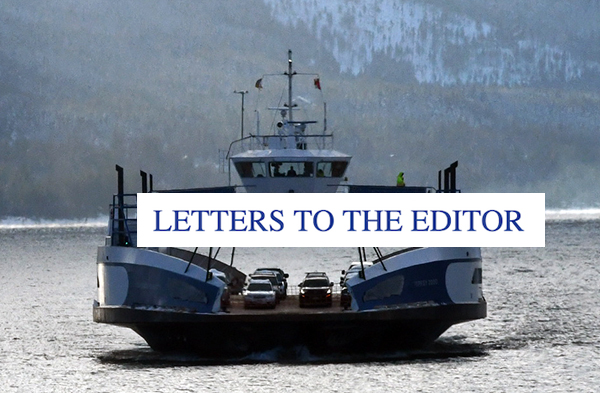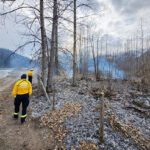Home »

Time for an electric-ready Kootenay Lake ferry
Letter to the Editor
The following is a copy of a letter sent to Honourable Rob Fleming, B.C.’s Minister of Transportation and Infrastructure
Dear Rob Fleming: Re: new electric-ready Kootenay Lake ferry
As the new Kootenay Lake ferry has started construction, we would like to push for this ferry to be 100% electric as soon as possible, and not wait until 2030 for full conversion.
We note that federal infrastructure money has gone into this project, delivered by the former federal minister of infrastructure, thus we are involved but also because this is part of an important global climate issue occurring in our federal riding of Kootenay-Columbia.
In light of the incontrovertible science-based evidence that the world has clearly entered into an emergency state regarding the climate crisis, as evidenced by the UN’s 2021 IPCC Report resulting in the UN Secretary-General Guterres issuing a “Code Red for Humanity,” how can your government justify continuing with a diesel powered new ferry until 2030?
Secretary- General Guterres also stated “The alarm bells are deafening. This report must sound a death knell for coal and fossil fuels, before they destroy our planet.” This is the perfect opportunity to transition to 100% electric.
The time for incremental steps is over. The needed change in viewpoint is illustrated by the former Minister of Transportation, Claire Trevena’s disappointing words, “electrifying its entire fleet of inland ferries, by 2040,” “taking a long-term systematic phased approach,” and “making incremental improvements to our fleet.” This delay is no longer acceptable.
With this new ferry alone, how many thousands of megatonnes of GHGs will be needlessly and harmfully emitted by 2030, including the heavy particulate matter in diesel fuel, especially damaging to our cardiac and respiratory systems?
As well, one has to take into consideration the degree of GHGs emitted in the extraction and production, and indeed in the transportation in a diesel-run vehicle providing this diesel fuel for the ferry vessel.
The Ministry of Transportation has expressed concern over “availability of shore power,” an understandable part of the equation, but this will have to be addressed anyway, and obviously is in the plans with the introduction of an electric ferry. And so, why the delay? What factors are hampering this? And most importantly, it doesn’t make sense to say that bringing shore power to Kootenay Lake for an all-electric ferry is difficult, when Kootenay citizens’ homes and livelihoods were lost and our food security compromised in the flooding of our most productive land (for both agriculture and ecosystems) by the reservoirs of the Columbia River Treaty, which were put in place to generate electric power! Surely this shore power provision can be expedited for our own community’s use, and especially when so much is now at risk.
Corvus Energy, originally of Richmond BC but now centred in Norway, who has now powered several 100% electric ferries in Norway with modular lithium ion batteries, can also “provide shore charging stations where port electrical infrastructure is weak, [if need be], using Corvus Energy’s liquid-cooled Energy Storage System (ESS) technology.”
No doubt communication with Norway, the world’s leader in electric ferries, would be most helpful in gaining input.
Our federal government talks about “strong and ambitious climate action”. Every effort must now be made to reduce the effects of global warming. We are already at 1.2 degrees C of warming and, according to the UN’s annual emissions report, are on track for an unliveable 3.2 degrees of warming if we do not cut back fossil fuels. The last seven years of earth’s temperatures are the hottest ever on record and now the oceans too are noted to be the warmest ever recorded. The consequences of all this are most frightening, as we have all experienced now in B.C. with the multiple extreme weather events.
The climate scientists are united in decrying any fossil fuel expansion, which would include a new ferry vessel depending on diesel. And polls show that the majority of Canadians are very concerned about the climate crisis and want to see more action now. The 2018 IPCC report notes that limiting global warming to 1.5 degrees C will “require rapid and far-reaching transitions in energy, land, urban and infrastructure systems (including transport and buildings), and industrial systems.”
It is time for your government to show strong leadership now and not wait until 2030 to run the new Kootenay Lake ferry on 100% electric power. We can no longer procrastinate. Start with this new ferry vessel as soon as possible. Take the necessary steps to augment shore power.
Bill Green,
Chair Kootenay-Columbia Electoral District Association Green Party of Canada







